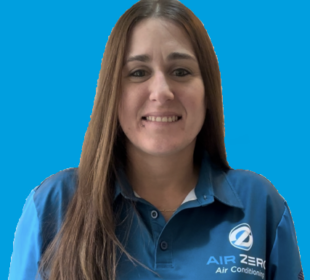When your home doesn’t feel as cool as it should, your air conditioner might be trying to tell you something. Strange sounds, uneven cooling, or nonstop cycling are more than minor annoyances — they’re signs that something’s not quite right. Knowing how to spot these early warnings can help you avoid a full system breakdown.
1. Vents Are Open, but the Room Still Feels Warm
If your AC is running and the vents are blowing air but the room isn’t getting cooler, something deeper could be going wrong. This issue often points to uneven airflow or declining system performance. The temperature in your home should drop steadily when the system runs, especially if the thermostat setting is several degrees lower than the current room temperature.
This issue might start in one room, usually the one farthest from your air handler. If your bedroom or upstairs hallway feels warmer than the living room, check the vents in both areas. When there’s a difference, you’re likely dealing with an airflow restriction or a refrigerant issue that’s reducing how well your AC can cool distant rooms.
Dirt inside the system can build up fast. A clogged evaporator coil or a return filter that hasn’t been changed in months can choke airflow and leave you sweating in some rooms while freezing in others. That uneven cooling is a sign that your system needs attention before it becomes unreliable across the whole house.
2. Your System Won’t Stop Running but Still Can’t Cool the House
When your AC seems like it’s running constantly but never reaches the temperature you set, that’s not just an energy issue. Something is interfering with the system’s ability to remove heat from your home. Even on a mild day, a functioning air conditioner should cycle off after reaching the thermostat setting. If it doesn’t, you may be watching your energy bill rise without the comfort to show for it.
Sometimes, the problem starts with the thermostat. If it’s reading the wrong temperature because of poor placement or old wiring, it might keep signaling the AC to run even though the house already feels comfortable in some areas. In other cases, the issue is the refrigerant level. If it’s too low, your system will struggle to pull heat from the air, and it’ll keep working harder than it should just to make a dent.
When an air conditioner runs nonstop, wear and tear pile up quickly. Components that would normally cycle on and off throughout the day don’t get that break, and they age faster. That kind of strain can take years off the system’s lifespan.
3. Your Energy Bills Don’t Match Your Habits
You might expect a bit of a spike when summer hits, but when your bill jumps dramatically without any big change in your habits, your air conditioner could be working harder than it used to. Maybe you’re still keeping the thermostat at the same setting. Maybe you haven’t added new electronics or stayed home more.
This kind of change usually means your system is losing efficiency. Parts inside the AC wear down slowly. Motors lose speed. Blower fans struggle to keep up. Even a minor refrigerant leak can make the entire system run longer and harder to achieve the same result. That kind of decline isn’t easy to spot day by day, but the utility company will reflect it in dollars.
Another sign comes when you notice your energy use rising during periods when the weather hasn’t been extreme. If your bill jumps during a week of mild temperatures when the AC should’ve had an easier time, something is wrong with how it’s managing its workload. Pay attention to those off-season spikes. They’re often the first sign that something mechanical is dragging efficiency down.
4. You Hear Sounds That Don’t Match the System’s Usual Rhythm
Air conditioners make noise, but they usually do so consistently. When you start hearing things like rattling, buzzing, squeaking, or loud clicks, it’s your system calling for help. These sounds can come from loose hardware, worn bearings, or problems with the blower or compressor. They’re mechanical issues that could get worse quickly if you ignore them.
A rattle that starts up each time the unit powers on might come from a loose fan blade. A constant hum might mean something electrical is struggling, like a contactor that won’t close properly. A screeching noise might mean a belt is wearing out or slipping, especially in older systems.
Try walking outside when the system’s running. Listen to the outdoor unit. If it’s louder than usual, shaking slightly, or giving off a metallic vibration, something might be misaligned or loose inside. If you hear the indoor unit clicking over and over, there could be a problem with the control board or relay.
5. You Notice Weak Airflow While the AC Is Running
When your vents feel like they’re barely pushing any air, even while the system is active, that usually means the air handler isn’t doing its job. You might still hear the hum of the AC running, but it doesn’t feel like much is happening. The air may feel cool when you put your hand near the vent, but it doesn’t travel far into the room.
This drop in air movement often starts with the blower fan. If the motor inside the air handler is starting to wear out, or dirt has built up on the blades, the system has to work harder to move air through the ducts. The result is weak output at the register even if the temperature of the air is fine.
Ductwork problems can also cause airflow loss. If a joint has come loose or there’s a small tear in the insulation, cool air can leak out before reaching your rooms. If you’re cranking up the AC just to feel something at the vent, it’s time to have someone check the system from inside the appliance to the farthest register.
6. The System Is Short Cycling
Short cycling is what happens when your AC turns on, runs briefly, and then shuts off before completing a full cooling cycle. A few minutes later, it starts again. If you’ve noticed this happening, you’re dealing with a system that’s either oversized for your home or malfunctioning in a way that’s interfering with normal behavior.
Thermostats can sometimes cause short cycling by sending the wrong signal. If the sensor inside the thermostat reads a sudden temperature drop when cold air hits it directly, it might shut off the system early. If the thermostat is placed near a window or vent, it can react too quickly to small shifts and create a stop-start cycle.
Have Your Air Conditioner Fixed Now
AC issues often start small, but they rarely stay that way. Whether you have a clogged filter or a bigger system problem, a little attention now can save you a lot of stress later. Our team of HVAC technicians can fix your system. We also offer heating repair, duct cleaning, and indoor air quality services.
Book an AC maintenance appointment with Air Zero in St. Petersburg, FL today, and get your cool back.

